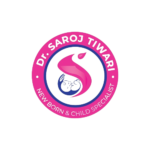Fever medicines to be used in children: An insight
When it comes to your child’s health, every degree matters. That’s why understanding the best practices for managing fever is crucial.
As recommended by the Indian Academy of Pediatrics, here are some essential steps to effectively manage your child’s fever.
- Temperature Monitoring: Keep track of your child’s temperature regularly, preferably using a digital thermometer.
- Hydration: Ensure your child drinks plenty of fluids, such as water, clear soups, or oral rehydration solutions, to prevent dehydration.
- Medications: Administer fever-reducing medications like paracetamol or ibuprofen, strictly following age-appropriate dosages.
- Comfort Measures: Dress your child lightly to prevent overheating. Offer a comfortable environment and rest.
- Medical Attention: Seek medical advice if your child’s fever persists for more than three days, is accompanied by severe symptoms, or if your child is an infant.
“Remember, fever is often the body’s natural response to infection. With proper care and attention, most fevers can be managed at home.”
When your child is battling a fever, administering the right medication is crucial for their comfort and recovery.” As recommended by the Indian Academy of Pediatrics, paracetamol and ibuprofen are commonly used fever-reducing medications for children. It’s important to strictly adhere to age-appropriate dosages.”
- Paracetamol: Suitable for infants and children of all ages. Administer based on your child’s weight, following the dosage instructions as advised by your pediatrician.
- Ibuprofen: Typically recommended for children over six months old. Dosage depends on weight and age. Always consult with your pediatrician for the correct dosage.
When administering these medications, always use the provided measuring device, such as a syringe or dropper, to ensure accurate dosing.”
For effective fever management in children, trust the guidance of the Indian Academy of Pediatrics.”
When it comes to managing fever in children, it’s essential to consider the safety and effectiveness of the medications used.”When your child is battling a fever, ensuring effective management is crucial for their comfort and well-being. Understanding the safest and most effective medications for fever management is essential. Here, we highlight the use of paracetamol and ibuprofen while advising caution against the use of mefenamic acid in children.
- Paracetamol (Acetaminophen):
- Paracetamol, also known as acetaminophen, is widely regarded as a safe and effective fever reducer for children.
- It works by reducing the production of certain chemicals in the brain that cause fever and pain.
- Paracetamol is available in various forms suitable for children, including liquid suspensions and chewable tablets, making it easy to administer.
- Ibuprofen (Ibugesic):
- Ibuprofen is another commonly used fever-reducing medication for children.
- It belongs to a class of medications known as nonsteroidal anti-inflammatory drugs (NSAIDs), which work by reducing inflammation and fever.
- Ibuprofen is available in child-friendly formulations, including suspensions and chewable tablets, making it convenient for parents to administer.
Benefits of Paracetamol and Ibuprofen
- Both paracetamol and ibuprofen are widely studied and proven to be safe and effective in reducing fever and relieving associated discomfort in children.
- They have well-established dosing guidelines based on the child’s weight and age, ensuring accurate administration.
- These medications are readily available over-the-counter in pharmacies and are generally well-tolerated by most children when used as directed.
Caution Against Mefenamic Acid in Children
- Mefenamic acid, another NSAID similar to ibuprofen, is not commonly recommended for fever management in children.
- Children may be more susceptible to adverse effects such as gastrointestinal irritation, kidney problems, and potential effects on platelet function when using mefenamic acid.
- Due to these risks, pediatricians typically advise against the use of mefenamic acid in children for fever management.
- When it comes to managing fever in children, paracetamol (acetaminophen) and ibuprofen (Ibugesic) are the preferred choices, given their safety profile and effectiveness.
- Parents should always adhere to recommended dosages and guidelines provided by healthcare professionals when administering these medications to children.
- It’s important to avoid the use of mefenamic acid in children for fever management due to potential risks and lack of established safety in this population.
By prioritizing the use of paracetamol and ibuprofen while avoiding mefenamic acid, parents can confidently manage their child’s fever while ensuring their safety and well-being. Always consult with a healthcare professional for personalized guidance and recommendations based on your child’s specific needs.

Dr. Saroj Tiwari completed her MBBS from Guwahati Medical College in 2006. She then pursued her M.D. from 2007 to 2010 at Guwahati Medical College, Assam.
Dr Saroj Tiwari, Child Specialist
- Midland Hospital, Sree Nagar Path, near State zoo, Guwahati, Assam 781005
- Phone : +91-87619-94462
- Email Id : drsarojgmc@gmail.com
Useful Links
- About Us
- Contact Us
- Appointment
- Our Services
